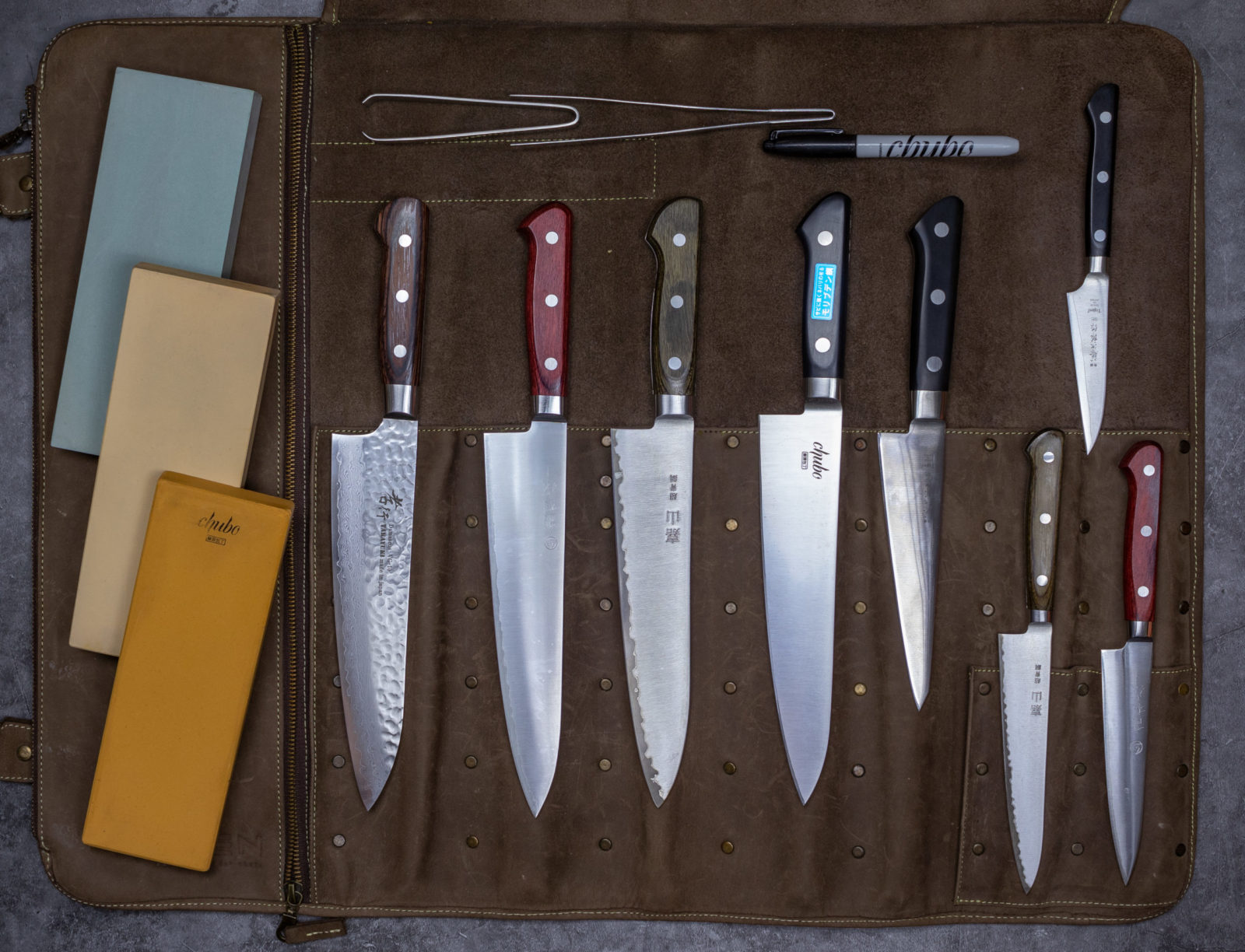
Japanese blades tend to be thinner and made from harder steels compared to most European made knives. These differences are why some people think Japanese knives are delicate and more prone to damage. In reality Japanese knives can last a lifetime and most major damage that we see comes from dropping the knife or inappropriate use. In order keep your knives in great condition for their lifespan, here’s our top things you should never do with a Japanese knife.
The most important thing to consider with Japanese knives is using the right knife for the job. Think of a Japanese gyutou chef’s knife as a razor. It is meant for cutting proteins and vegetables with precision, but not to hack through bones. Choose a knife like a deba for butchering fish and a honesuki for butchering poultry. Hankotu and Garasukis are also good choices for boning knives with the proper heft and blade geometry to cut through joints.
Another action that can cause damage to chef’s knives is twisting. Twisting is especially dangerous when cutting through hard dense ingredients like large wheels of aged cheese and very hard squash. It’s important to use straight cutting motions without twisting the blade and choosing heftier blades like a nakiri for these types of jobs.
Never use a Japanese knife to cut frozen food. Full stop. If you are even thinking about it, please don’t.
What about cleavers? Japanese cleavers are great, useful knives. Their weight and size, paired with really thin edges makes for effective cutting for vegetables and proteins. Their generous surface area is useful for moving ingredients around, but they are not meant to be used for butchery. Cutting through bones can damage these blades.
If you haven’t heard this before, Japanese knives should always be washed by hand and dried immediately. Never leave a knife in the sink or put it in the dishwasher. Rust will cause damage but can be removed easily if superficial. So best to prevent it in the first place, but always deal with it as soon as possible.
As always, please get in touch with any questions!
